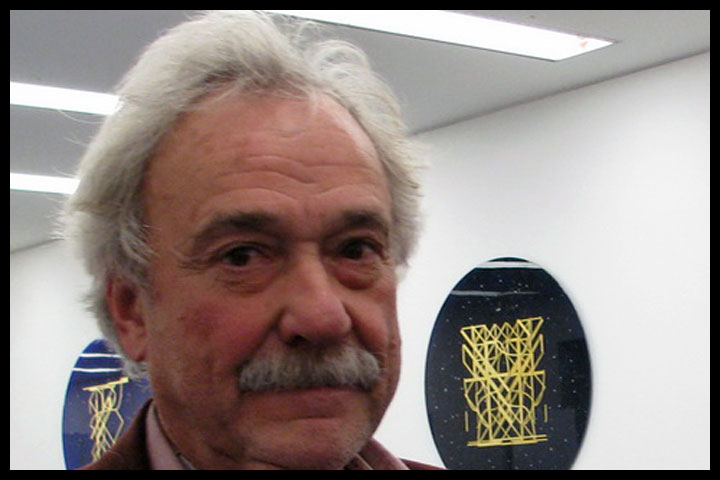


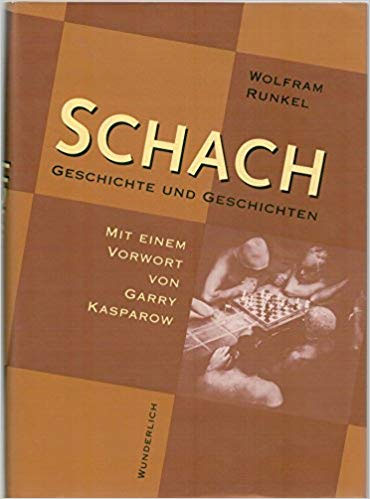 Wolfram Runkel was born on October 24, 1937, in Hagen, Germany. After school in Duisburg he moved to Hamburg, where he found his permanent residence. In the 1970s he started writing for the weekly magazine Die ZEIT, one of the most prestigious in the nation. Initially, he mainly submitted articles on travel, foreign countries — especially Ireland, being a great fan of James Joyce — about television and other cultural themes. At some stage he grew interested in chess and did pioneer work of introducing the subject to a major news magazine. That tradition has continued to this day. In 1998 Runkel published a book called "Chess: History and Stories". He also wrote regularly for the chess magazine Karl.
Wolfram Runkel was born on October 24, 1937, in Hagen, Germany. After school in Duisburg he moved to Hamburg, where he found his permanent residence. In the 1970s he started writing for the weekly magazine Die ZEIT, one of the most prestigious in the nation. Initially, he mainly submitted articles on travel, foreign countries — especially Ireland, being a great fan of James Joyce — about television and other cultural themes. At some stage he grew interested in chess and did pioneer work of introducing the subject to a major news magazine. That tradition has continued to this day. In 1998 Runkel published a book called "Chess: History and Stories". He also wrote regularly for the chess magazine Karl.
Runkel was a charming personality, liked by all. His demeanour was always calm and collected, but full of humour. He was always interested in the people he met. He had a son with the German songwriter, singer and record producer Annette Humpe, one of the most important representatives of the Neue Deutsche Welle ("New German Wave").
Wolfram was a great friend of our company and a regular guest at our Christmas dinners and other get-togethers. He will be sorely missed.
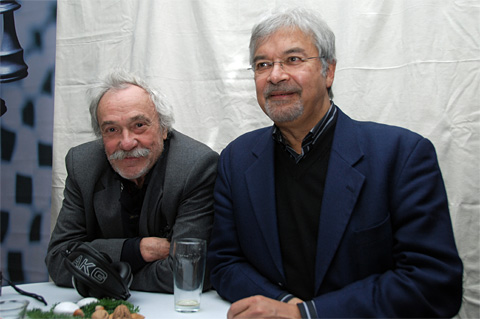
Wolfram Runkel and Frederic Friedel at the ChessBase Christmas dinner 2010
This is going to be a long story, but one that is important — actually life-changing — to me. It begins in 1978 when I was still studying Philosophy at the University of Hamburg, but also helping to produce science documentaries for national television. I was having a great time, reporting on the Great Pyramids and how they were built, or picking fights with astrologers. I was always looking for interesting new subjects.
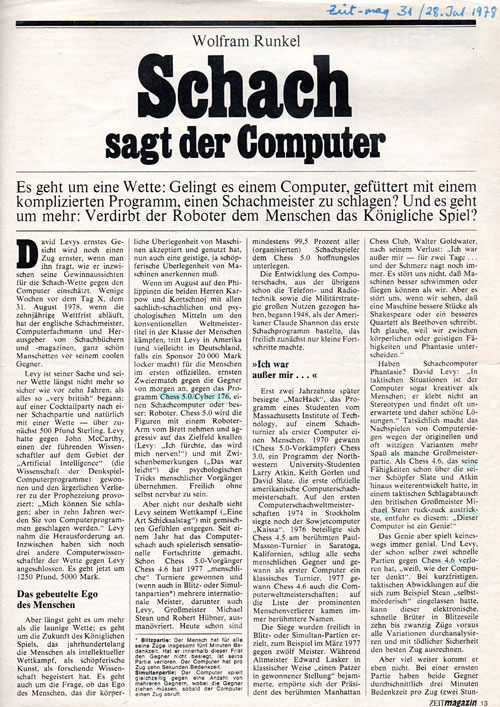 One day, on July 28, 1978, an article in ZEIT magazin, caught my attention. It described the progress that had been made in computer chess, how a machine had managed, for the first time, to beat a grandmaster in blitz chess, and how International Master David Levy had successfully bet that no computer would be able to beat him for ten years.
One day, on July 28, 1978, an article in ZEIT magazin, caught my attention. It described the progress that had been made in computer chess, how a machine had managed, for the first time, to beat a grandmaster in blitz chess, and how International Master David Levy had successfully bet that no computer would be able to beat him for ten years.
I had been an avid chess player during my teen years, but given up the game when I realized I was not talented enough to be truly successful. So I was out of touch with the game. Still, the article fascinated me, and I was soon on the phone with the author, Wolfram Runkel, who invited me to come over to the office building for a cup of coffee and discussions. We made friends and I was there or he at my home many times. He gave me all the necessary contacts and helped me research a proposal for the TV station where I was working.
I have described what then transpired in my article The Adventure of Chess Programming (1): I presented the idea to my boss at the German national channel ZDF. "Do you know that computers can now play chess?" I asked legendary science anchor Hoimar von Ditfurt. His reply has stuck in my memory: "I wo!" (German for "you must be kidding!"). I spent half an hour explaining how it all worked, after which he said: "Write it up, we can do a 43-minute feature on the subject."
A few months later, in our studio in Hamburg, we played Scottish International Master David Levy, whose contact I got from Wolfram, against CHESS 4.8, the strongest chess program at the time. The moves were executed by a robot arm, remotely controlled by a giant mainframe in Minneapolis. It was a very exciting game that ended in a draw. All this has been described in my article Computer chess history – knowledge vs brute force. A couple of years later the rival national channel hired me to do a second documentary on the subject, in which we conducted the first ever experiment in electronic cheating in chess. Wolfram was always part of the action, helping me research the subject and writing enthusiastically about the documentaries we produced.
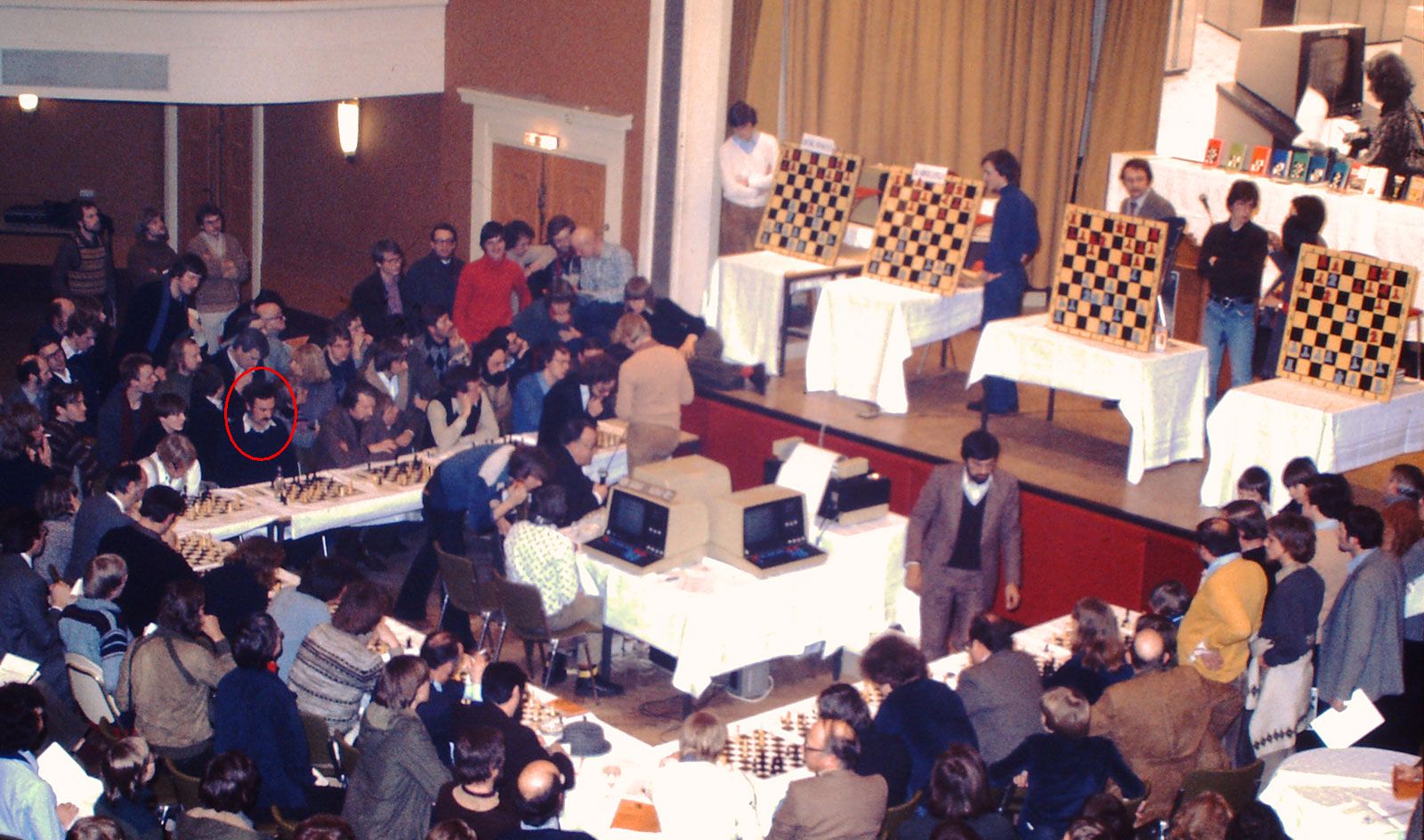
During the filming of Levy vs CHESS 4,8 in Hamburg I arranged a simultaneous exhibition with the computer, A CDC Cyber 176, located in Minneapolis, taking on 16 opponents.
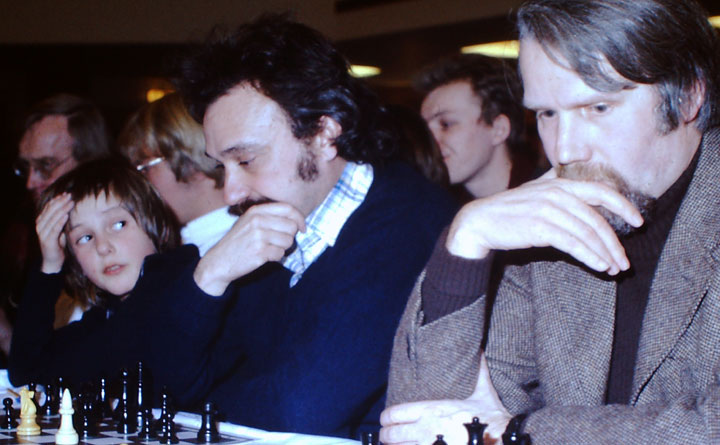
One of the opponents was (naturally) Wolfram Runkel, who wrote about what it was like to play a super-computer. Next to Wolfram is his young son Robin, who today is in the management of the Market Consultants HPP.
After this I was trapped in the world of chess and chess playing computers. In 1985, I made friends with Garry Kasparov who was a guest of the other big Hamburg news magazine Der Spiegel. During his stay I helped Wolfram prepare a blindfold simul for Garry in the offices of Die Zeit, and after that, together with Matthias Wüllenweber, I founded ChessBase.
Before we return to the article that started it all, one more little story (of dozens more I could narrate) about Wolfram and his involvement in chess. In 1979, there was a grand international GM tournament in Munich, at which GM Dr Helmut Pfleger carried out medical tests on the players (of which he was one). The point was to monitor their heart rates during a game.
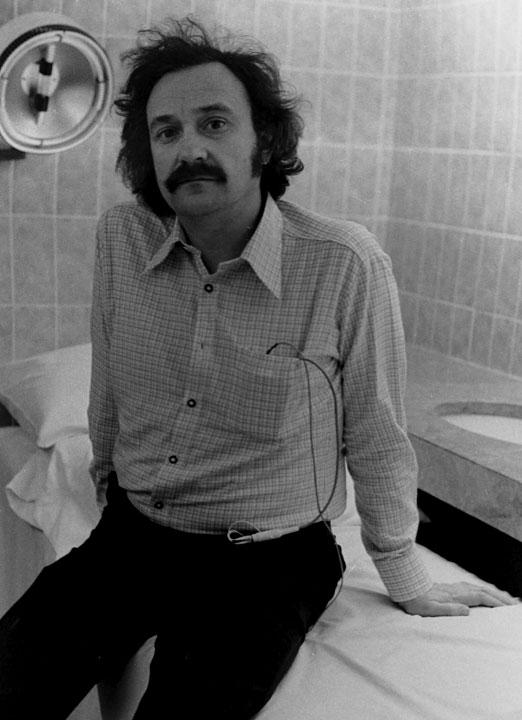
Helmut was assisted in his research by Wolfram — here testing the pulse rate monitor before the start of a round — and me
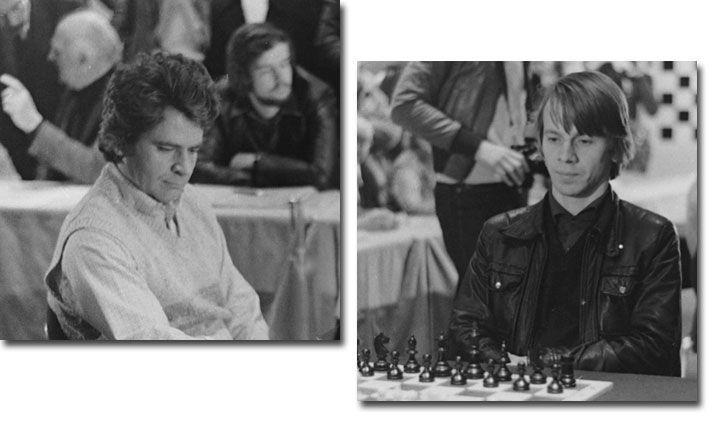
Two volunteers were Boris Spassky (2nd) and Ulf Andersson (3rd), who both wore pulse monitors and scored 8½/15 points
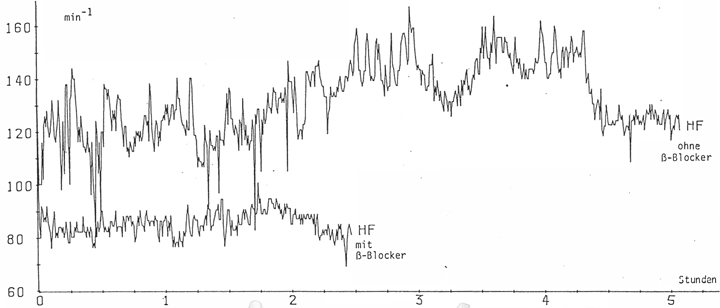
Incidentally, Helmut monitored himself during the games and here you see his pulse rate during a normal game (top line) and in one where he had taken a beta blocker to reduce his heart rate (bottom line)
And now to the original article by Wolfram Runkel from 1978. To my immense joy I have discovered that I archived it, and reading it again tells me it is an important historical document. In the next days I will make a full English translation it for our readers. This I owe to Wolfram, but also to our readers, because the article shows us the status of computer chess 41 years ago and the expectations for its evolution. For instance would you believe that some of the following statements were made in 1978?
In perhaps five years there will be, on the consumer market, chess computers with about the Chess 4.6 strength
[Soon] the best chess player will be the one who is the most diligent student on his computer.
Will players not take their electronic chess masters to tournaments, like students using crib sheets on the toilet, to find the best moves?
Also remarkable, Wolfram's description of consumer chess machines that would take up to 24 hours per move yet could be defeated in fifteen moves. So, stand by for the translation!